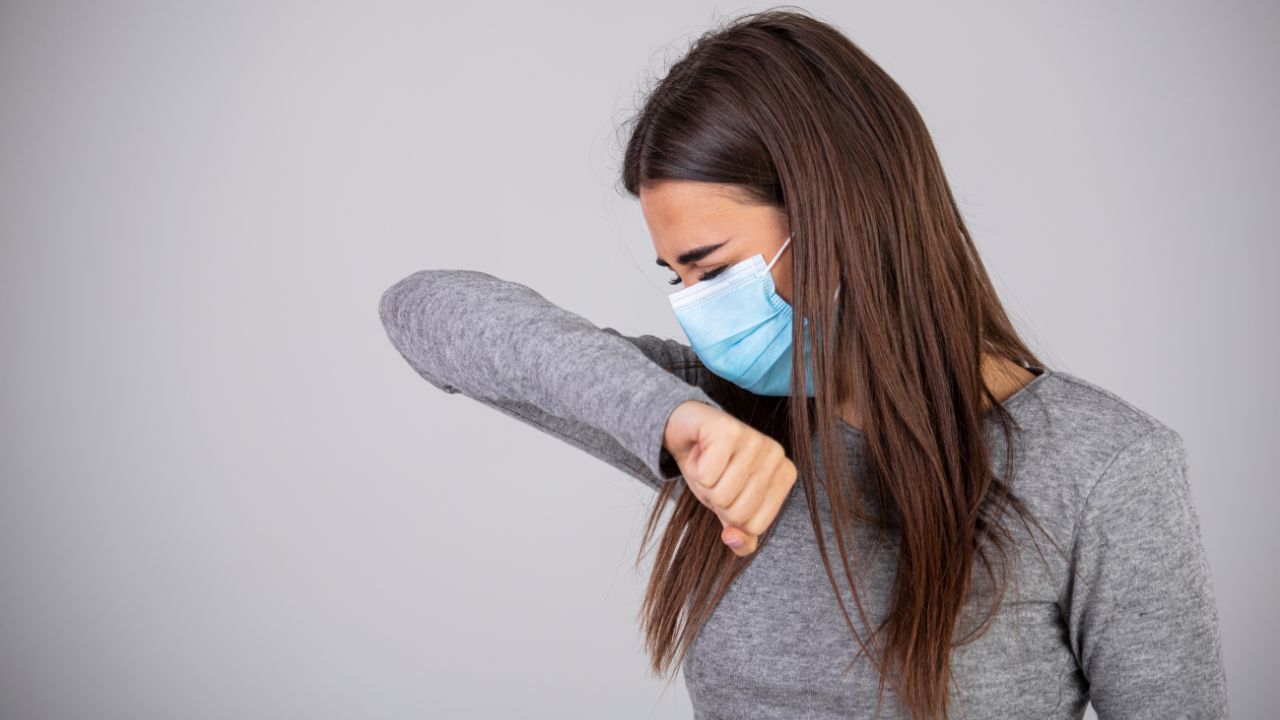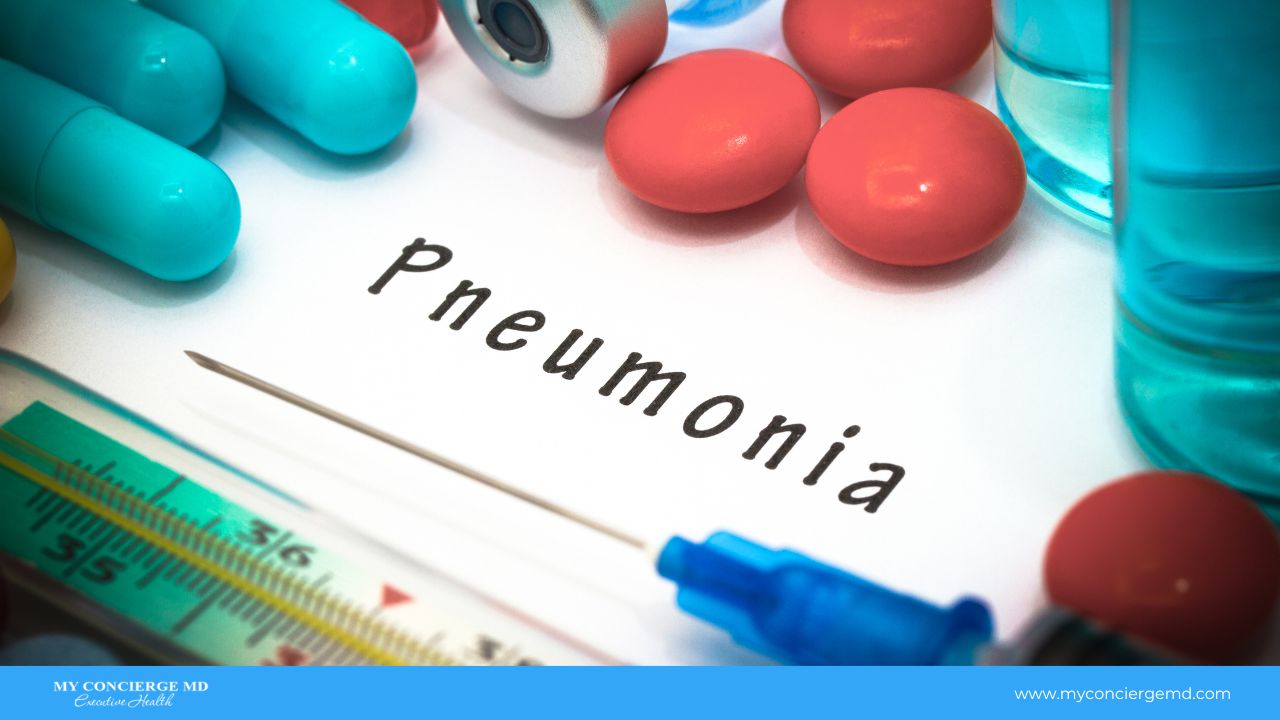Pneumonia is a common and serious infection of the lungs that can affect people of all ages and cause mild to severe symptoms. The sickness can be caused by various germs, such as bacteria, viruses, fungi, or mycoplasma, that invade the air sacs in the lungs and cause inflammation and fluid buildup.
But is pneumonia contagious? Can you catch it from someone else or spread it to others?
The answer is not so simple, as it depends on the type and cause of pneumonia, as well as the health and immune status of the person. This blog post will explore the different types of pneumonia, how they are caused, the risk factors, and how they can be prevented.
We will also provide tips on recognizing the signs and symptoms of pneumonia and when to seek medical attention.
By the end of this post, you will have a better understanding of pneumonia and how to protect yourself and your loved ones from this potentially life-threatening infection.
Is Pneumonia Contagious? How Does Pneumonia Spread From Person To Person?
Yes, pneumonia can be contagious and can spread from person to person through droplets in the air. This can occur when an infected person talks, coughs, or sneezes and releases droplets that contain the pneumonia-causing bacteria or virus. If someone else inhales these droplets, they can become infected with the pneumonia-causing pathogen.
Pneumonia can also be spread through close contact with an infected person, such as kissing, hugging, sharing utensils or cups, or coughing or sneezing near someone.
Pneumonia is not contagious when caused by other factors, such as inhaling chemical fumes, food, or liquid into the airways.
It’s essential to take steps to prevent the spread of pneumonia, which include:
- Covering your mouth and nose when coughing or sneezing
- Washing your hands regularly, and
- Avoiding close contact with people who are sick
If you have pneumonia, staying home and avoiding close contact with others is vital until you have received treatment and are no longer contagious.
Call +1-877-760-3558 Or Click Here to Send Us Email

Types Of Pneumonia And Their Causes
There are several types of pneumonia, each with different causes:
Bacterial Pneumonia
Bacteria, such as Streptococcus pneumoniae, Haemophilus influenzae, and Legionella pneumophila, cause this type of pneumonia.
Viral Pneumonia
This type of pneumonia is caused by viruses, such as the flu (influenza) virus, the respiratory syncytial virus (RSV), and the adenovirus.
Fungal Pneumonia
Fungi, such as Aspergillus and Candida, cause this pneumonia. Fungal pneumonia is most common in people with weakened immune systems, such as those with HIV/AIDS or those undergoing chemotherapy.
Mycoplasma Pneumonia
This type of pneumonia is caused by the bacterium Mycoplasma pneumoniae. It is also known as “walking pneumonia” because it can cause mild symptoms that can be mistaken for the flu.
Pneumocystis Pneumonia (PCP)
This type of pneumonia is caused by the fungus Pneumocystis jirovecii and is most commonly seen in people with weakened immune systems, such as those with HIV/AIDS.
Aspiration Pneumonia
This type occurs when someone inhales food, liquid, or vomit into their lungs, leading to infection.
Each type of pneumonia has different symptoms and treatment options, so getting a correct diagnosis is important to ensure the best possible outcome.
Symptoms And Diagnosis Of Pneumonia
 The symptoms of pneumonia can vary depending on the type and severity of the infection, but common symptoms include the following:
The symptoms of pneumonia can vary depending on the type and severity of the infection, but common symptoms include the following:
- Fever
- Cough, with or without phlegm
- Chest pain or discomfort
- Shortness of breath
- Fatigue
- Muscle aches
- Nausea or vomiting
- Diarrhea
If you experience any of these symptoms, you must see a doctor. You can consult our Pulmonary testing unit to get a comprehensive diagnosis.
We will likely ask about your medical history and perform a physical exam, including listening to your chest for signs of wheezing or crackling sounds that may indicate pneumonia.
To confirm a diagnosis of pneumonia, your doctor may also order some of the following tests:
- Chest X-ray: This test provides images of your lungs and can show signs of fluid, inflammation, or consolidation.
- Blood tests: Blood tests can be used to check for signs of infection, such as a high white blood cell count.
- Sputum culture: This test involves collecting a sample of phlegm produced by coughing to check for the presence of bacteria or other pathogens.
- Pulse oximetry: This non-invasive test measures the amount of oxygen in your blood.
- CT scan: A CT scan can provide detailed images of your lungs and may be used to rule out other conditions, such as a blood clot in the lungs.
Based on the results of these tests, your doctor will determine the best course of treatment for your pneumonia.
Impact Of Pneumonia On Different Populations
Some of the impacts of pneumonia on different populations are:
Children
Pneumonia killed more than 808,000 children under the age of 5 in 2017, accounting for 15% of all deaths of children under 5 years old but 22% of all deaths in children aged 1 to 5 years.
It can also cause long-term complications such as lung damage, recurrent respiratory infections, and impaired growth and development.
Children are more vulnerable to pneumonia because their immune systems are not fully developed, and exposed to many pathogens in their environment4.
Some signs of pneumonia in children include
- Cough
- Fever
- Rapid breathing
- Chest indrawing
- Wheezing
- Vomiting
- Loss of appetite, and
- Lethargy
Elderly
Pneumonia is a common and serious infection in older adults, especially those with chronic lung diseases, heart diseases, diabetes, dementia, or weakened immune systems.
Pneumonia can lead to complications such as sepsis, respiratory failure, pleural effusion, lung abscess, and death. The ailment is also associated with increased hospitalization, healthcare costs, and mortality in the elderly.
Some signs of pneumonia in older adults may differ from those in younger people, such as
- Confusion
- Delirium
- Low body temperature
- Falls, or
- Worsening of existing conditions.
How To Protect Yourself And Others From Pneumonia?
There are several ways to protect yourself and others from pneumonia:
Get Vaccinated
Vaccines are available to protect against certain types of pneumonia, such as the pneumococcal vaccine, which protects against pneumococcal bacteria.
Wash your Hands Regularly
Wash your hands frequently with soap and water for at least 20 seconds, especially after being in close contact with someone sick or touching common surfaces like door handles.
Avoid Close Contact with People who are Sick
If someone you know is sick with pneumonia or any other illness, try to avoid close contact with them until they have recovered.
Cover your Mouth and Nose when Coughing or Sneezing
When you cough or sneeze, cover your mouth and nose with a tissue or use the inside of your elbow to help prevent the spread of droplets.
Clean and Disinfect Frequently Touched Surfaces
Regularly clean and disinfect frequently touched surfaces, such as door handles, light switches, and keyboards, to reduce the risk of infection.
Practice Good Respiratory Hygiene
If you are sick, avoid close contact and wear a mask around others, especially in public places.
Seek Medical Attention if you Experience Symptoms
If you experience pneumonia, such as a fever, cough, or chest pain, seek medical attention as soon as possible to receive prompt treatment and prevent the spread of the infection to others.
How To Support Someone With Pneumonia?
If you know someone who has been diagnosed with pneumonia, there are several ways you can support them:
Offer Practical Support
Offer to help with grocery shopping, cooking, and cleaning to reduce the burden on the person with pneumonia.
Provide Emotional Support
Listen to the person and offer words of encouragement. Let them know that you are there for them and that they are not alone.
Help them with their Medication
Offer to help the person keep track of their medication schedule and to remind them to take their medicine as prescribed by their doctor.
Encourage them to Get Plenty of Rest
Pneumonia can be draining, both physically and emotionally, so the person needs to get plenty of rest and avoid overexerting themselves.
Provide Healthy Meals
Offer to bring the person healthy, nutrient-rich meals to help them build up their strength and recover more quickly.
Help them Stay in Touch with their Healthcare Provider
Encourage the person to stay in touch with their healthcare provider and attend all scheduled appointments.
Follow Infection Control Precautions
If you are in close contact with the person, it’s important to follow them to prevent the spread of pneumonia, such as washing your hands frequently and covering your mouth and nose when coughing or sneezing.
Risks Factors For Developing Pneumonia
Several factors can increase the risk of developing pneumonia, including:
Age
Older People, especially those over 65, are at increased risk of developing pneumonia. The immune system naturally weakens, making age a risk factor regardless of health status.
Chronic Health Conditions
People with chronic health conditions, such as heart disease, diabetes, lung disease, or a weakened immune system, are at increased risk of developing pneumonia.
Smoking
Smoking damages the lungs and weakens the immune system, making it easier for pneumonia-causing pathogens to take hold.
Poor Nutrition
Malnourished people, especially those with a deficiency of vitamins and minerals like vitamins A, C, and D, are at increased risk of developing pneumonia.
Alcohol Abuse
Alcohol abuse can weaken the immune system and make it easier for pneumonia-causing pathogens to take hold.
Living in Crowded Conditions
People who live in crowded conditions, such as in nursing homes or refugee camps, are at increased risk of developing pneumonia because they are more likely to be exposed to pneumonia-causing pathogens.
Lack of Access to Healthcare
People who lack access to healthcare and do not receive timely infection treatment are at increased risk of developing pneumonia.
Exposure to Pollutants
Exposure to pollutants, such as indoor and outdoor air pollution, can weaken the lungs and increase the risk of pneumonia.
Conclusion
Pneumonia is a common but dangerous infection that can affect anyone, especially children, older adults, and people with other health problems. Knowing the facts about pneumonia and its contagiousness can protect yourself and your loved ones from this potentially life-threatening infection.
The best way to prevent pneumonia is to vaccinate, practice good hygiene, avoid tobacco smoke, eat a healthy diet, and stay hydrated. If you have symptoms of pneumonia, such as cough, fever, chest pain, shortness of breath, or fatigue, you should seek medical attention as soon as possible.
Pneumonia can be treated with antibiotics, antivirals, antifungals, oxygen therapy, fluids, rest, and pain relievers, depending on the cause and severity of the infection.

